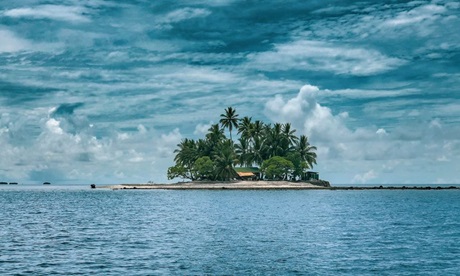Caritas Aotearoa New Zealand is joining others from the Catholic Church’s international aid agency’s call for climate debt to be erased in vulnerable Pacific countries.
Some are struggling to pay for basic social costs due to crippling debt repayment, Caritas says.
Caritas spokesperson Tony Sutorius says worsening cyclones and flooding have created severe financial burdens.
“Climate damage leads to debt and that has the potential to turn into a huge debt spiral that could be really damaging to the integrity and sovereignty of emerging nations” he says.
“In the past, we would think of development aid perhaps in terms of grey aeroplanes arriving and sacks of things being taken out and given to people, but increasingly nowadays you’re more likely to get an aeroplane full of bankers who are offering loans rather than actually giving grants.”
Basic services impacted
Every country is uniquely impacted by climate change, debt and social needs.
“To use Fiji as an example, it has got to the stage now where the debt is approaching 90 per cent of GDP, which is a very high amount” says Sutorius.
“What that means in practice is that around 15 per cent of the total government spending every year is just paying the interest on the debt, and that’s recognized internationally as a real danger threshold.”
A concern he has is that some Pacific nations may seek quick fixes to debt at the cost of long-term sustainability.
“One of the risks that Pacific countries face is that they are tempted by this cash crunch of having to pay these big loans into unsustainable mining, for example, or extractive industries where they see a kind of a golden hope of being able to dig their way out, literally.”
Debt and climate disaster
Debt and climate disasters are connected and are critical considerations in countries vulnerable to climate change, says Soane Mafi Bishop, president of Caritas Oceania and Cardinal of Tonga and Niue.
“Governments are paying more in interest and other debt servicing obligations than they are on health, education or climate adaptation.
“Action must be taken to forgive debt and prevent it in the future” he stresses.
But Sutorius notes climate grants from rich countries are increasingly turning into climate loans. He also notes that, where debt used to be made on a country-to-country basis and allowed some friendly concessions, today’s loans come mostly from the private sector.
Wealthy nations fall short
A report from Caritas Oceania and Australia groups, including the Jubilee Australia Research Centre, criticises wealthier nations for offering poorer Pacific nations loans instead of grants.
It’s also critical of members of the (just finished) COP29 UN climate conference which failed to meet its finance goals by a margin of a trillion dollars.
Of that goal, just $300 billion was committed to help vulnerable nations, particularly those in the Pacific.
Source
Additional readingNews category: New Zealand.




